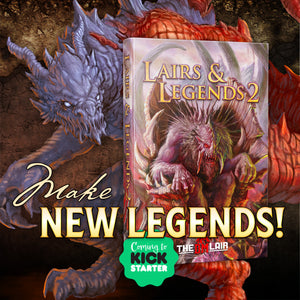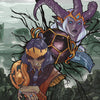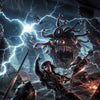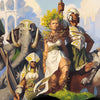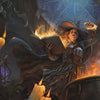15 Things Every New DM Should Know
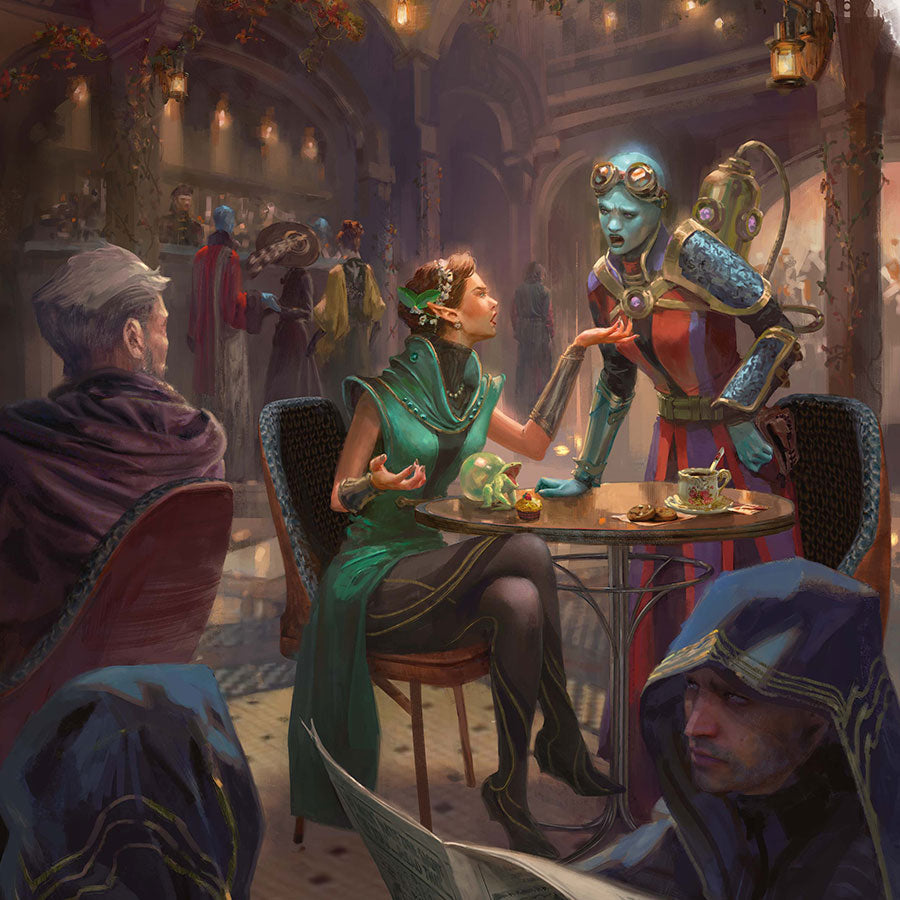
By Luke Hart
So, you’re about to run your first Dungeons & Dragons game? You’ve typed “HELP!” into Google and landed here. First off—welcome! You're about to embark on an incredible adventure, not just for your players, but for yourself as well. Whether you’re excited, terrified, or a little bit of both, this guide is here to walk you through the essentials every new dungeon master (DM) should know before running their first session.
And remember: you don’t have to do it all perfectly. You just have to start.
By the way, if you need a quick adventure to run for your group when you're in a pinch, check out all the one-shots we have to choose from. Grab an adventure, read it in about 15 minutes, and you’re ready to run your game!
Watch or listen to this article by clicking the video below.
1. You’ll Never Feel Ready. Just Start.
You can read every rulebook cover to cover. You can outline your setting and obsessively prepare your adventure. But no matter how much prep you do, you’ll still feel like you’re not ready. That feeling never goes away entirely—even experienced dungeon masters deal with it. So prep what you can, but eventually, you just need to dive in. Gather your group, schedule your game, and start rolling.
2. You Don’t Need to Know All the Rules
Seriously, you don’t. Dungeons & Dragons has a lot of rules, and no one—not even the designers—has all of them memorized. What’s important is knowing where to find the rules when you need them and being willing to make a quick judgment call when necessary. You’ll get better over time. Look things up, but don’t stress about being perfect.
3. Start Small
Many DMs get the “worldbuilding bug” and feel like they need to design an entire continent before running a single game. Resist that temptation. You only need a starting town, a few surrounding areas, and one adventure. That’s enough. As your players explore the world, you can build more of it. Let the campaign grow naturally.
4. Don’t Try to Be a Famous DM
You don’t need to emulate Matt Mercer or Brennan Lee Mulligan. Those people are running highly produced shows for an audience. You’re running a game for your friends. It’s okay to learn from them, but don’t try to replicate their style. Focus on making your players—not internet viewers—have a great time.
5. Your Players Aren’t Judging You as Much as You Think
New DMs tend to overthink everything. But your players are just excited to play. Most of them are just happy someone volunteered to run the game. If they’re laughing, showing up each week, and talking about the game outside of sessions—you’re doing just fine.
6. You Don’t Need Miniatures or Fancy Terrain
Sure, miniatures look cool, but you don’t need them to run a great game. Theater of the Mind can be just as engaging—and significantly cheaper. Many amazing campaigns have been run with nothing more than pencil, paper, and imagination.
7. You Will Have Bad Game Sessions (And That’s Okay)
Every DM has an off night. Even veteran game masters. A session will bomb. A plot hook won’t land. Your players will go off the rails, and you won’t know how to handle it. That’s okay. Learn from it. Adjust. And most importantly—keep going.
8. Your Fun Matters, Too
Yes, the DM’s job is to provide a good experience for the players. But you should be having fun, too. Don’t build a game around elements you dislike just to please the group. If you love tactical combat, run a game with tactical combat. If you enjoy puzzles, add puzzles. Your enthusiasm will make the game better for everyone.
9. Present Problems. Let Players Solve Them.
As the dungeon master, your job is to create situations and challenges—not to write the story yourself. The players and the dice create the story as they respond to what you present. Avoid scripting outcomes. Focus on creating interesting problems and let your players figure out how to solve them.
10. No Matter How Much You Prepare, You’ll Still Need to Improvise
You can’t plan for everything. Players are unpredictable, and that’s the beauty of the game. You’ll need to improvise NPCs, dungeons, and plot twists on the fly. And here’s the trick: the more you prepare, the easier it is to improvise well. Don’t skip planning—but don’t expect your plans to survive first contact either.
11. Use the Rules as Written… at First
Before you start homebrewing, take time to learn the system. Follow the rules in the books for at least a year or two. Understand how the game works and why certain mechanics exist. Only then should you start tweaking things to suit your preferences and play style.
12. Communicate With Your Players
When in doubt, talk to your group. If they keep ignoring plot hooks, ask them what kinds of adventures they’re interested in. If side conversations are getting out of hand, politely let them know. Set expectations for in-game behavior and discuss anything that might make people uncomfortable. D&D works best when there’s open communication.
13. Avoid the Scheduling Spiral of Death
Set a consistent game schedule and stick to it. “Every other Sunday at 4 PM” is far better than “Let’s figure out next week’s game time after today’s session.” Waiting until everyone is available or rescheduling constantly is a great way to watch your campaign fizzle out. Play with whoever can make it, and keep the story moving.
14. Say “How?” Instead of “No.”
When a player wants to do something unusual, don’t default to saying “no.” Instead, ask “how?” Maybe they’ll come up with a clever solution. Maybe they’ll talk themselves out of it. And if what they want to do is still too ridiculous or impossible, it’s okay to say “no”—but always listen first.
15. It’s Not You vs. the Players
D&D isn’t a competitive game. The DM isn’t trying to “beat” the players. Yes, your monsters should fight smart and play to win, but your goal is to create a fun and challenging experience—not crush them. You’re all collaborating to tell an awesome story.
Easy-to-Prep One-Shot Adventures
Whether you're too busy to prep an adventure and game night is fast approaching or you'd just rather use a professional pre-made adventure for your group, our 5e and PF2e one-shot adventures have you covered.
- Dozens of adventures, all levels of play
- Lightning fast to prep
- Read-a-loud text, NPCs, area descriptions, roleplaying notes, encounter notes
- Digital maps (GM and player versions, gridded and un-gridded)
- Everything you need to play!
Gone are the days of just winging it and hoping for the best. Check out everything our one-shot adventures have to offer today!
-
Posted in
Game Master How-To Articles


